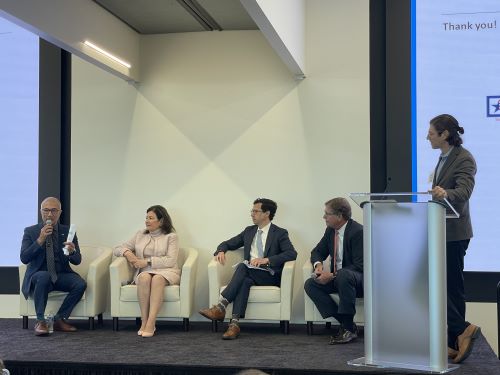Federal Judge in Texas Could Take Up to a Month to Rule on Protections for Young Undocumented Immigrants
A federal judge who heard arguments in Houston last week could take as long as about a month to issue a ruling on whether to swiftly end an Obama-era program that protects certain young undocumented immigrants from deportation. But no matter what this judge says, the battle is far from over and the potential consequences for the workforce are significant.
Essentially, two questions are before US District Judge Andrew Hanen.
First will be whether Texas and other states will be successful in asking Hanen to order an immediate end to the Deferred Action for Childhood Arrivals, or DACA, program. The second question has to do with arguments over the constitutionally of the program enacted under President Barack Obama back in 2012 by executive order rather than a change in law by Congress.
Judge Hanen, who sided with Texas Attorney General Ken Paxton previously on a program aimed at protecting the parents of immigrants, has been called "one of the most hard-line judges in the country" on the issue. However, attorneys on both sides said his attitude during the hearing was fair. Paxton abruptly left the courthouse and took no questions from reporters after the hearing DACA. His office said he had security concerns. Paxton has previously said his lawsuit is centered on the "rule of law" and has nothing to do with the "wisdom" of any particular immigration policy.
Reporter Kimberly Reeves attended the hearing for Quorum Report and tells us:
Attorney Nina Perales of the Mexican-American Legal Education Fund and New Jersey Attorney General Gurbir Grewal called Hanen, by turns, well prepared, engaged, curious and patient with the lengthy discussion.
Grewal took aim at Texas during his comments to reporters after the hearing, saying even the Trump administration wasn’t going to the lengths that Texas has to stop DACA.
“For the last six years, the state of Texas did nothing, and hundreds of thousands of people came out of the shadows to live their lives,” Grewal told reporters after the hearing concluded. “Texas did nothing while, at the same time, filing actions against the Obama administration in other areas. Then suddenly, four months ago, Texas decided somewhat the DACA program violated the rule of law.”
What Grewal didn’t mention was that DACA was launched by the Department of Homeland Security in 2012, during now-Gov. Greg Abbott’s term as Attorney General. Texas was joined by the attorney generals of Alabama, Arkansas, Nebraska, Louisiana, Kansas, South Carolina and West Virginia. The governors of Mississippi and Maine joined the case. Abbott did not.
In other words, the administration of Gov. Rick Perry took a more commonsense approach to DACA while Abbott as governor has taken a harsher stance – not only backing Paxton’s lawsuit to end the program but also demanding a ban on so-called “sanctuary cities” passed by the legislature at his urging last year.
That policy along with the devastation caused by Hurricane Harvey put a sharp focus on the workforce challenges faced by Houston and the rest of the Gulf Coast as the region recovers from the monster storm.
This battle over DACA is not expected to be over anytime soon. District Courts in California, New York and Washington, DC have blocked the Trump Administration from canceling it and Judge Hanen pointed out that an injunction would be a temporary, contingent on the outcome of a pending court case to overturn the program.
Media coverage of the issue often focuses on DACA recipients earning advanced degrees and entering the workforce at that level. In reality, though, the construction industry and restaurants would be hardest hit by a reversal of the policy, as noted by CNBC:
Nearly 19 percent of working DACA recipients hold jobs in food service, according to an analysis by the advocacy group New American Economy. The construction sector employs another 10 percent. Together, they account for about 240,000 people.
That’s why groups like the Texas Association of Business, the Texas Restaurant Association, many chambers of commerce as well high-profile companies like Houston-based Marek Brothers Construction, United Airlines, Southwest and others are opposing Paxton’s lawsuit.
“Our work and specifically the economic statistics provided in our Amicus brief were the focus of discussion before the Court,” said Beto Cardenas, an attorney at the law firm of Vinson & Elkins representing business groups and companies. “As you know, facts show that Dreamers provide a positive impact to the Texas economy.”
We’ll stay on top of the case and let you know when Judge Hanen issues a ruling.








